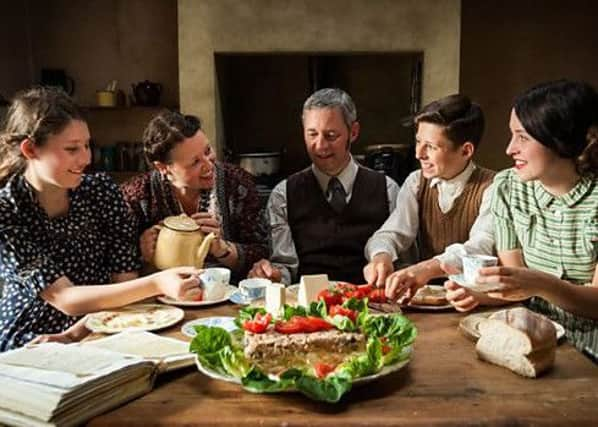David Behrens: Rites of passage reveal a shift back in time to era of '˜Old Nosey'


The rites of passage in my adolescence were getting a store card from Hepworth’s and a place on the guest list at a nightclub that George Best might have been thrown out of three years before. But standards have slipped and twenty-somethings now consider, apparently, that going to the tip is a more realistic badge of adulthood.
The insurer Endsleigh, whose clients are students, released a survey of such traits this week, and concluded that doing the weekly food shop and getting excited about a new dishwasher were also signs that the first flush of youth had passed.
Advertisement
Hide AdAdvertisement
Hide AdI’d be excited, too, about a new dishwasher. Which rack would the gravy boat go on? Would it fit the plumbing thingys under the sink? My evenings would be taken care of for a week.
But the real difference between my expectations as I slipped into my 20s and those of today’s students, my son included, is the age at which I could afford to have my own place.
Today, said the survey, the average millennial does not begin to feel like an adult until 25, at which point he or she will have fled the nest into a rented property shared with others. I can’t remember exactly what I was earning at that age but I’m pretty sure that when at 22 I bought my first – unshared – home, the price was around three times my salary. Today in Yorkshire, the multiplication factor is 10.
Even back then, the investment seemed substantial. A small flat like mine was three times the price my parents’ home had been 12 years earlier, and I wondered how on earth I would cover the mortgage payments.
Advertisement
Hide AdAdvertisement
Hide AdThe Abbey National Building Society must have wondered, too, for they insisted on customers like me having maintained an account with them for two years before they would contemplate a loan.
Hindsight now tells me that I was relatively fortunate. The arc of my life had turned out to be on the upward curve of a bigger one, which has spanned several lifetimes and taken families in the North especially from the means test to the index-linked pension, and back again.
The suggestion from MPs this week that the Government had failed to make a decent business case for the rolling-up of half a dozen welfare payments into a new system known as Universal Credit will have struck a chord with anyone who saw Back In Time For Tea, BBC2’s evocation of pre-war northern life, on Tuesday. This took a family from Bradford back through the decades to experience the privations of previous generations of workers.
I was slightly uneasy about the implicit typecasting that compelled the producers to set a series about the working classes in the North, but still the parallels between the 1930s and the present day were as striking as the differences.
Advertisement
Hide AdAdvertisement
Hide AdThe original means test was the Universal Credit of the Depression era. It required anyone with goods worth £20 or more – furniture, a Hepworth’s suit, you name it – to sell them if they expected their dole payments to be maintained. The custom, now lost in time, was for families to pass such items around the neighbourhood to keep them out of sight of the Government assessor – “Old Nosey”. Today, those people would be called benefits cheats.
In some communities, that mindset has never gone away, but it’s hard to ignore the warning signs that for our children’s generation it will become more pervasive.
Even now, as we learned from another survey this week, more than a quarter of working families have no savings they can call on in an emergency and nothing left to put aside at the end of the month.
These are Theresa May’s JAMs – the Just About Managing generation her administration was supposed to champion, but whose agenda has been subsumed by the apparently more important one of her own survival.
Advertisement
Hide AdAdvertisement
Hide AdIn an era of unprecedented uncertainty, and with our economy plummeting headlong into the past, those of us in late middle-age can only be grateful that we managed to scramble on to the property ladder when it still had a bottom rung.